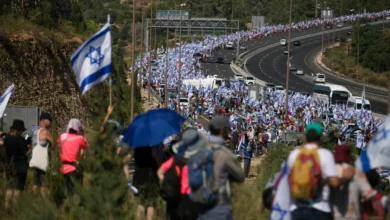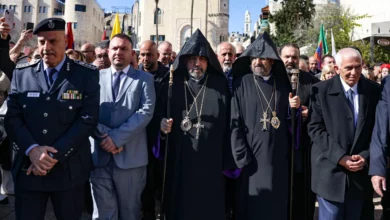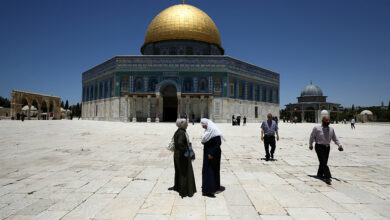
President Barack Obama on Friday called for respect for religious sites in Jerusalem and the status quo that allows the shared worship of the three religions in that area.
“The religious sites that are so important to three of the world's major religions inside of Jerusalem need to be respected and that the status quo that allowed shared worship in and around these spaces needed to be maintained,” the Obama said at a joint press conference with South Korean President Park Geun-hye at the White House.
Obama’s comments came as recent clashes have been erupted between Israeli forces and Palestinian worshippers who are prevented from attending prayers at Al Aqsa Mosque in Jerusalem’s Old City.
As Israeli authorities have prevented men under 40 years old from entering the Al-Aqsa Mosque compound, violence has spread across Palestinian cities.
Since Oct. 1, seven Israelis and more than 30 Palestinians, including several children, have been killed in clashes. In many cases knife and blades were used, according to authorities.
State Department spokesman John Kirby on Wednesday described knife attacks by Israelis and Palestinians as terrorism.
“We condemn in the strongest possible terms violence directed against innocent people and believe that Israel has a right to maintain basic law and order and protect its citizens from knife attacks, and violence on the streets,” Obama said.
The American leader called on Israeli and Palestinian leaders "to tamp down rhetoric that may feed violence or anger".
Regarding the contention between North Korea and South Korea, Obama pledged to protect South Korea against regional threats.
"Our alliance remains a linchpin of peace and security not just on the Korean peninsula, but across the region," Obama said.
He said the U.S. would also be at the negotiation table if Pyongyang decides to follow the path of Iran in terms of denuclearization.
"Pyongyang’s nuclear and missile programs have achieved nothing except to deepen North Korea’s isolation," he said. “At the point where Pyongyang says we’re interested in seeing relief from sanctions and improved relations and we’re prepared to have a serious conversation”.
But he added that he has yet to see any sign of willingness on the part of the communist regime in North Korea to give up its nuclear program.




